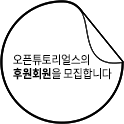(1) Though, strictly speaking, there can be no absolutely passive reading, many people think that, as compared with writing and speaking, which are obviously active undertakings, reading and listening are entirely passive.
Though,
strictly speaking,
there can be no absolutely passive reading,
many people think that,
as compared with writing and speaking,
which are obviously active undertakings,
reading and listening are entirely passive.
어휘
* undertaking : 일, 프로젝트
해석
엄격하게 말해 절대적으로 수동적인 독서는 있을 수 없지만
많은 사람들은 명백하게 능동적인 일인 쓰기와 말하기와 비교하여
읽기와 듣기는 완전히 수동적이라고 생각한다.
(2) The writer or speaker must put out some effort, but no work need be done by the reader or listener.
The writer or speaker
must put out some effort,
but no work
need be done by the reader or listener.
어휘
* put out : 내놓다.
* effort : 결과
해석
쓰는 사람과 말하는 사람은 어떤 결과를 내 놓아야만 하지만 읽는 사람과 듣는 사람은 그럴 필요가 없다.
(3) Reading and listening are thought of as receiving communication from someone who is actively engaged in giving or sending it.
Reading and listening
are thought of as receiving communication
from someone
who is actively engaged in giving or sending it.
해석
읽는것과 듣는것은 그것을 능동적으로 주거나 보내는것으로 연결된 어떤 사람들로부터 의사소통을 받아들이는 것으로 생각된다.
(4) The mistake here is to suppose that receiving communication is like receiving a blow or a legacy or a judgment from the court.
The mistake here is to suppose
that receiving communication
is like receiving
a blow or a legacy or a judgment
from the court.
해석
이런것의 실수는 받아들이는 정보가 마치 타격을 당하거나 유산을 받거나 법정에서 판결을 받는것과 같다고 생각한다는 것이다.
(5) On the contrary, the reader or listener is much more like the catcher in a game of baseball.
On the contrary,
the reader or listener
is much more like the catcher
in a game of baseball.
어휘
* on the ontrary : 그와는 반대로
해석
그와는 반대로 독자와 청자는 야구에서 포수에 아주 가깝다 .



